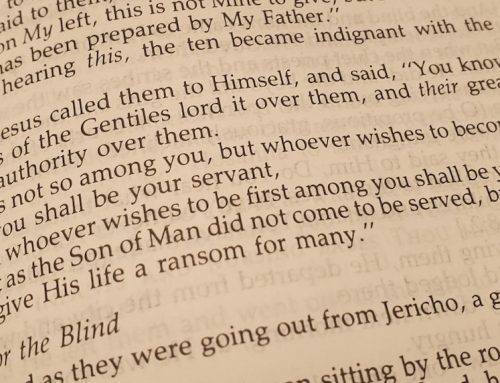To speak where the Bible speaks, and be silent where it’s silent has long been my motto, but I have not always lived up to it. Like many reformation denominations, which with one mouth subscribe to the Nicene Creed, and with another mouth sing a different tune, I too have given lip service to my motto without being true to its ideals.
The motto, I believe, is a good one. If the Bible speaks on an issue, I ought to speak where it speaks, always in love, of course. But the truly hard part is remaining silent when the Bible is silent. That goes against every ounce of our human nature. We want to have an opinion on everything, and as humans, we love to convince everyone how right we are, don’t we?
Ah, but many will say we’ve been given “everything that pertains to life and godliness.” True enough. But does every question that arises “pertain to life and godliness” according to Peter? If so, the Bible is silent on nothing, so why is there a need to be silent about anything?
But if the Bible is indeed silent on some things, I ought to be careful that I’m not preaching and teaching my interpretation of the Bible’s silence in place of the Bible’s actual silence. In other words, I ought to actually be silent on those issues, not fill the silence with my own rules and assumptions.
I have to allow for the fact that a question under discussion simply may not pertain to life and godliness at all, or may only have something to do with it as a matter of personal conscience, not public teaching. God’s opinion may not even necessarily be “yes” or “no.” Sometimes it may be “it depends” or “it doesn’t matter.” Thus the silence, perhaps.
Filling this silence can’t be done without some fairly extensive excursions into fallible human logic. For instance, the Bible is silent (in my opinion) on the issue of church-owned places of worship. We find examples of the disciples meeting in rented rooms, public places like gardens and synagogues, and believers’ homes, but we never find examples of them pooling their resources for a building fund.
If I try to force the silence on this issue into a doctrine that we can or can’t own a building, I’m in essence speaking where the Bible is silent. I ought, rather, to simply acknowledge the Divine Silence. Let every man be convinced in his own mind.
Of course, I may form an opinion and live by it. I may even share it, as my own personal opinion. On this particular question, I believe that it is a matter of indifference to God, but I believe more genuine fellowship can be achieved by meeting in our homes whenever feasible. But my opinion must not be mistaken as firm Biblical exposition. If I present it that way, I am violating my motto of remaining silent where the Bible is silent.
The Pharisees would certainly have been safer from the rebukes of Jesus had they lived by this motto. Their problem was they always tried to “fill in all the gaps” of the law by interpreting various contingencies for the people. This led them into the weeds, so often.
“Surely,” they thought, “if we cannot work on the Sabbath, and walking long distances is ‘work,’ there must be a maximum distance we can walk on the Sabbath to ensure we are not ‘working.'” They reasoned logically (perhaps not unlike this May Meeting deliberation about rules for travel). God would want all Jews to attend synagogue on the Sabbath, right? Therefore, the maximum distance one can walk is the distance from one’s home to the synagogue. This became the “Sabbath Day’s Journey,” beyond which one was considered violating the Law of Moses if they traveled on the Sabbath.
This was logical enough, even reasoned fairly well, but their rule was nevertheless complete and utter nonsense. God meant no such thing when he legislated to not work on the Sabbath. They were “teaching for doctrines the commandments of men” by filling the silence with their own opinions. It was their “judgment,” and they felt no shame in binding it on the masses.
That is the danger we are in when we try to fill in all the gaps by interpolating and extrapolating God’s will on everything from lipstick to nylons to travel plans from the Scriptures. When we rely on a series of assumptions, and proceed to make rules for everyone else based on those assumptions, we are indeed teaching doctrines which are nothing more than the commandments of mere men.
It’s much more scriptural, yet takes so much more self-restraint to just let the silence sit there. Bask in it. Appreciate it. Be amazed at God’s wisdom in it.
It’s fine to have our own opinions on Biblical silence. But let’s not impose our opinion of what the Divine Silence means by trying to fill it with our own human voices.






I want to shout this from the rooftops!! You have put the concept of Divine Silence into such easy-to-understand terms. Brother, thank you.
No, thank you for reading and lending your voice. It's great to have an army of people shouting from the rooftops with me.